Whether you're a seasoned gardener or a beginner with a green thumb, cultivating your garden herbs is a delightful and rewarding experience. From the bold flavors of rosemary and basil to the delicate fragrance of lavender and chamomile, herbs add depth and complexity to your culinary creations.
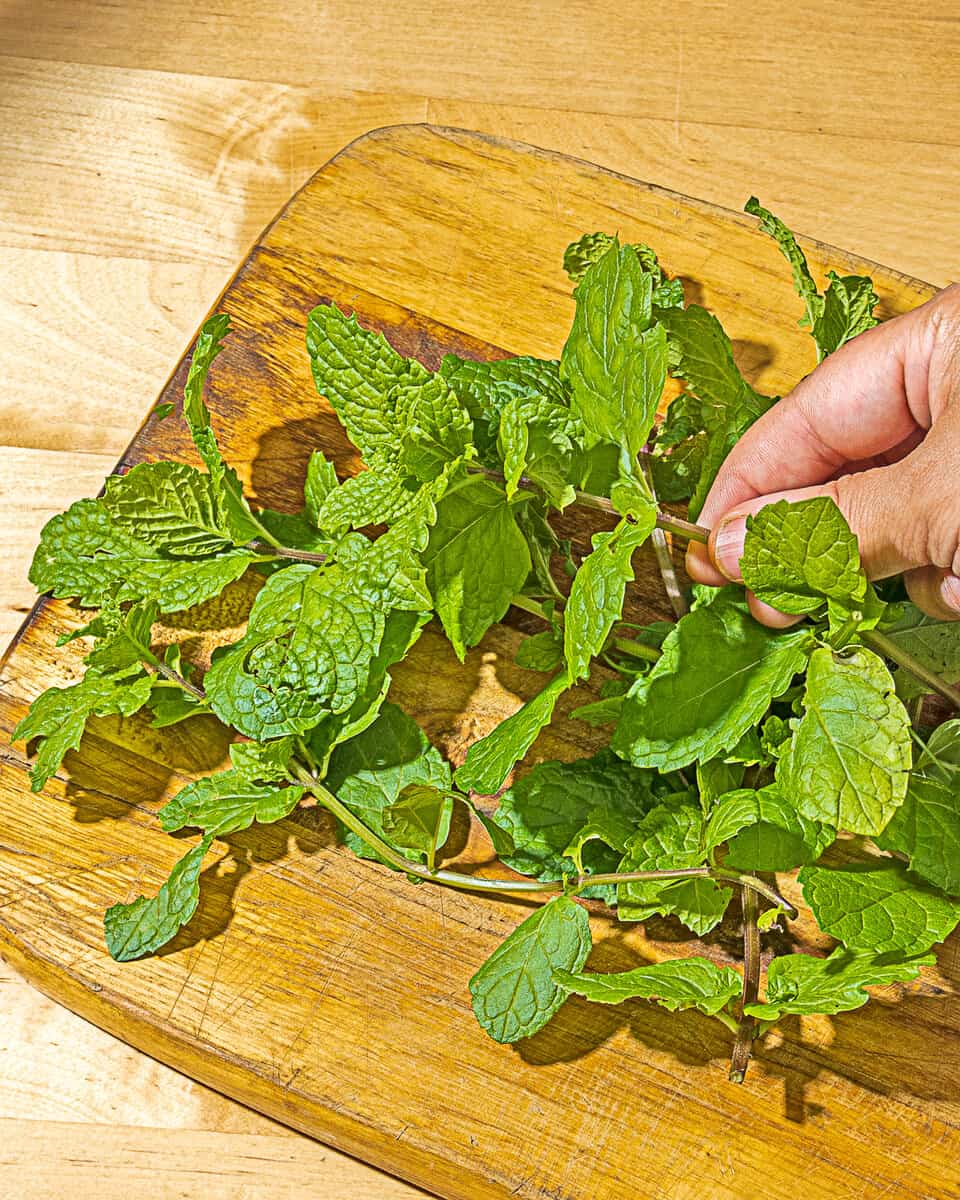
This comprehensive guide will explore a diverse range of herbs, their growing requirements, and the various ways you can incorporate them into your daily life. if you are looking to grow herbs in your kitchen garden, prepare to embark on a journey of growing herbs for flavor, fragrances, and endless possibilities.
Rosemary: The Robust Evergreen
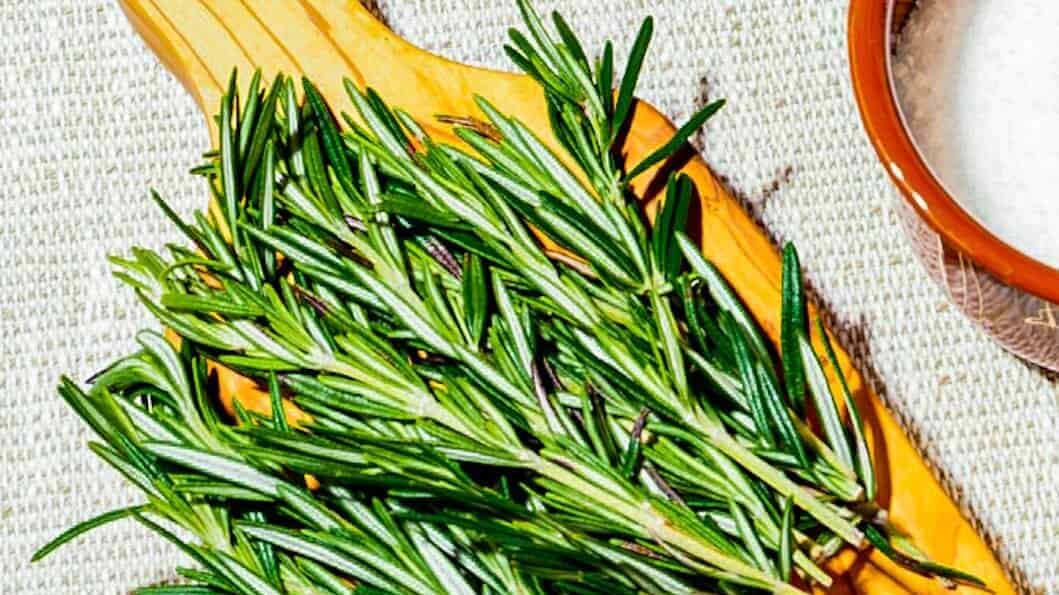
Rosemary is a staple in Mediterranean cuisine, known for its robust flavor and versatility. This perennial herb thrives in full sun and well-drained soil, making it ideal for gardens in warmer climates. Its needle-like leaves, with their distinct aroma, can elevate a wide range of dishes, from roasted chicken and grilled vegetables to hearty stews.
Related: Rosemary Sea Salt
Dill and Parsley: A Dynamic Duo
Dill and parsley are annual herbs that brighten up any garden with their delicate foliage and refreshing taste. Dill's feathery leaves add flavor to seafood dishes and salads, while parsley's vibrant green leaves enhance the soups, sauces, and marinades. These herbs thrive in full sun or partial shade, making them versatile additions to any herb garden.
Basil: The King of Aromatics

When it comes to aromatic herbs, basil reigns supreme. Its vibrant leaves and intoxicating fragrance make it a must-have in every culinary enthusiast's garden. Basil loves full sun and well-drained soil, and it thrives in pots or directly in the ground. From classic pesto to caprese salads and tomato-based dishes, basil adds a fresh and fragrant touch to countless recipes.
Related: Basil Vodka: an Easy Infused Vodka Recipe
Oregano and Thyme: Mediterranean Marvels

Oregano and thyme are two essential herbs in Mediterranean cuisine, renowned for their robust flavors and ability to withstand various growing conditions. These perennial herbs prefer full sun and well-drained soil but can also tolerate partial shade.
Oregano's earthy and slightly bitter taste complements pizzas, pasta sauces, and roasted vegetables, while thyme's aromatic and slightly minty flavor pairs perfectly with meats, stews, and marinades.
Marjoram: A Subtle Herb with a Punch
Marjoram is a lesser-known herb that deserves more recognition for its delicate and complex flavor profile. This perennial herb, belonging to the oregano family, thrives in full sun and well-drained soil. Its sweet and slightly floral taste adds a subtle punch to sauces, soups, and vegetable dishes.
Chervil and Coriander: A Fresh Twist
Coriander and Chervil bring a unique freshness to the world of herbs. Chervil, an annual herb, prefers partial shade and moist soil, making it a great addition to herb gardens with varying light conditions. Its delicate leaves have a subtle anise flavor that complements fish, eggs, and salads. Coriander, also known as cilantro, offers two distinct flavors: its leaves add a fresh and citrusy taste to dishes, while its seeds provide a warm and nutty flavor to curries, stews, and baked goods.
Spearmint: Cool and Refreshing
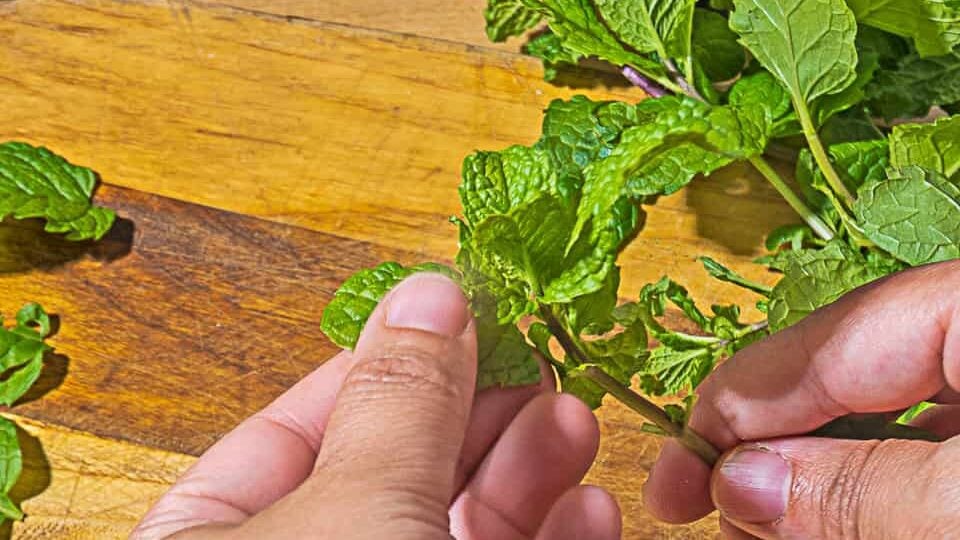
Spearmint is a cooling herb with a refreshing taste that makes it a popular choice for teas, beverages, and desserts. This perennial herb thrives in full sun or partial shade and prefers moist soil. Its bright green leaves add freshness to summer drinks, fruit salads, and savory dishes like lamb curries. Spearmint also attracts pollinators, adding a touch of nature's beauty to your garden.
Chives
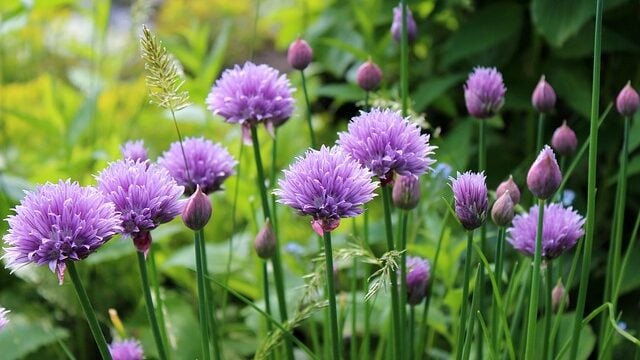
Chives are a great addition to any garden. They are easy to grow and provide delicious flavor for many dishes. You can use fresh or dried chives for seasoning soups, salads, bread, or potatoes. You can also use chive blossoms in salads or on top of cheeses like brie or camembert.
The Versatility of Aromatic Herbs
Aromatic herbs, such as mint, lavender, and chamomile, offer many benefits beyond their delightful scents. With its refreshing aroma, mint is a fantastic addition to beverages like mojitos and herbal teas. With its calming fragrance, lavender adds tranquility to desserts, infused oils, and bath products. Chamomile, known for its soothing properties, creates a delightful tea that promotes relaxation and aids in digestion. These herbs are known for their ability to in full sun or partial shade, making them adaptable to various growing conditions.
The Power of Stalks and Leaves
With its aromatic leaves, Bay laurel is a staple in many kitchens. These leaves impart a distinct flavor to soups, stews, and braised meats, adding depth and complexity to your culinary creations. A true evergreen shrub, bay laurel enjoys full sun and well-drained soil, making it an excellent addition to any herb garden.
Growing Herbs in Pots
If you have limited space or want the flexibility of moving your herbs around, growing them in pots is a great solution. Pots provide the convenience of having your favorite herbs within arm's reach, whether you place them on a sunny windowsill or a cozy patio. Herbs like thyme, rosemary, and spearmint thrive in pots as long as they receive ample sunlight and are planted in well-draining soil. Feel free to experiment and mix different herbs in the same pot, creating your personalized herb garden.
Harvesting and Preserving
One of the joys of growing herbs is the ability to harvest them at their peak, ensuring maximum flavor and freshness. When harvesting, the general rule is to pinch or snip off the leaves or stems as needed, leaving enough growth for the plant to continue thriving. Regular harvesting promotes bushier growth and ensures a steady supply of herbs for your culinary endeavors.
Preserving herbs allows you to enjoy their flavors even beyond the growing season. Drying herbs is a popular method, where you can tie small bundles of herbs and hang them in a warm, well-ventilated area. Once dried, store them in airtight containers away from direct light. Another option is freezing herbs by chopping them finely and placing them in ice cube trays with water or oil or freezing whole leaves in sealed bags. These methods lock in the flavors, allowing you to savor the taste of summer all year round.
Herbs for Different Culinary Delights
The world of herbs offers various flavors that can enhance various dishes. Whether you're preparing salads, soups, vegetables, or even potatoes, there's an herb to suit every culinary delight. French tarragon adds a touch of anise-like flavor to vinaigrettes and chicken dishes. Parsley brings freshness and vibrancy to salads and seafood. Sage pairs perfectly with roasted meats and savory stuffing.
Nurturing Your Herb Garden
Like any other plant, herbs thrive when given the proper care and attention. Providing adequate water, sunlight, and well-drained soil is essential for a successful herb garden. Regularly check the soil and water moisture levels, considering some herbs prefer drier conditions.
Mulching around the base of the plants helps retain moisture and suppresses weed growth. Additionally, inspect your herbs regularly for signs of pests and diseases. Pests such as aphids, caterpillars, and mites can threaten your herb garden, but organic methods exist to combat them. Introduce beneficial insects like ladybugs and lacewings that feed on pests, or use natural remedies such as neem oil or insecticidal soap to deter unwanted visitors.
Get Good with Soil
Proper drainage is crucial for the health and longevity of your herbs. Most herbs prefer well-drained soil, as excessive moisture can lead to root rot and other fungal diseases. If your garden soil retains too much water, consider incorporating organic matter or creating raised beds to improve drainage.
Herbs like lavender and thyme, which thrive in dry conditions, particularly benefit from well-drained soil.
To encourage healthy growth, it's essential to prune and trim your herbs regularly. This helps maintain their shape, prevents them from becoming leggy, and promotes bushier growth. Pinching off the tips of growing stems encourages lateral branching, resulting in a fuller and more productive plant.
Herbs can be grown in various settings, from traditional garden beds to windowsill containers and hanging baskets. Hanging baskets save space and add a visually stunning element to your garden or patio. Herbs like mint, thyme, and rosemary are well-suited for hanging baskets, cascading gracefully over the edges and creating an eye-catching display.
For those seeking elegance and sophistication in their herb garden, consider adding evergreen shrubs like bay laurel and rosemary. These shrubs provide aromatic foliage and serve as ornamental elements, enhancing the overall aesthetics of your outdoor space. With proper care, these perennial herbs can become the centerpiece of your garden.
Exploring the World of Herb Flavors
The flavors and tastes of herbs are as diverse as the cuisines they grace. Basil brings a sweet, slightly peppery flavor to dishes, making it a staple in Italian and Thai cooking. Rosemary offers a bold, woody taste that pairs perfectly with roasted meats and potatoes. Oregano brings a pungent and earthy flavor to Mediterranean dishes, while dill adds a fresh and tangy taste to pickles, seafood, and creamy sauces.
The fragrance of herbs adds an extra dimension to your culinary creations. The unmistakable aroma fills the air when chopping fresh cilantro leaves, infusing dishes with a zesty and citrusy scent. The delicate scent of lavender transports you to fields of purple blooms, adding a touch of romance to desserts and beverages. With its cooling and refreshing fragrance, Mint breathes life into cocktails, teas, and chocolates.
Herbs not only enhance the flavors of your dishes but also offer health benefits and medicinal properties. Chamomile tea soothes and calms the senses, aiding relaxation and promoting restful sleep. Peppermint helps ease digestion and can be a natural remedy for headaches and nausea. With its bright citrus aroma, Lemon balm has been known to alleviate anxiety and improve mood.
Creating Your Herb-Infused Culinary Masterpieces
Now that you better understand the diverse world of garden herbs, it's time to unleash your creativity in the kitchen. Experiment with different combinations of herbs to create unique flavor profiles that elevate your dishes to new heights. The possibilities are endless, whether you're making a fragrant bouquet garni for a hearty stew or infusing oil and vinegar with herbs for dressings and marinades.
Remember, the key to successful herb gardening lies in understanding each herb's specific requirements and characteristics. Each herb brings distinctive flavors and aromas, from the perennial delights of rosemary and thyme to the annual vibrancy of basil and dill. Embrace the beauty of marjoram, the freshness of coriander, and the coolness of spearmint as you embark on this flavorful journey.
So, roll up your sleeves, get your hands in the soil, and let the magic of herbs unfold in your garden and kitchen. Whether you're a novice or an experienced gardener, the world of garden herbs offers endless opportunities to explore, savor, and enjoy the bounties of nature. Happy gardening and bon appétit!

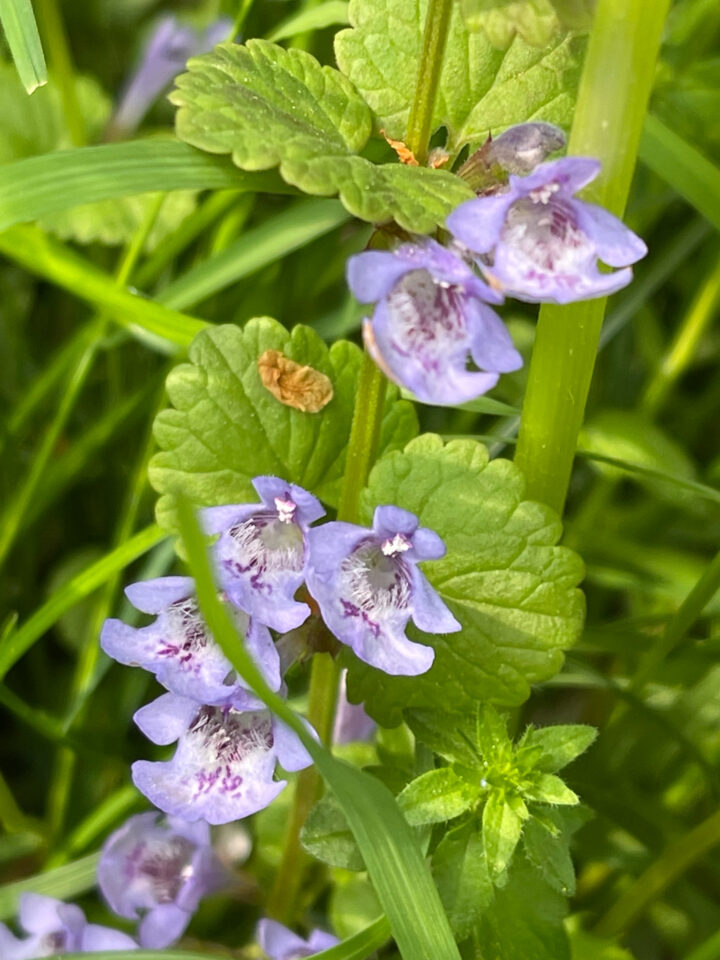
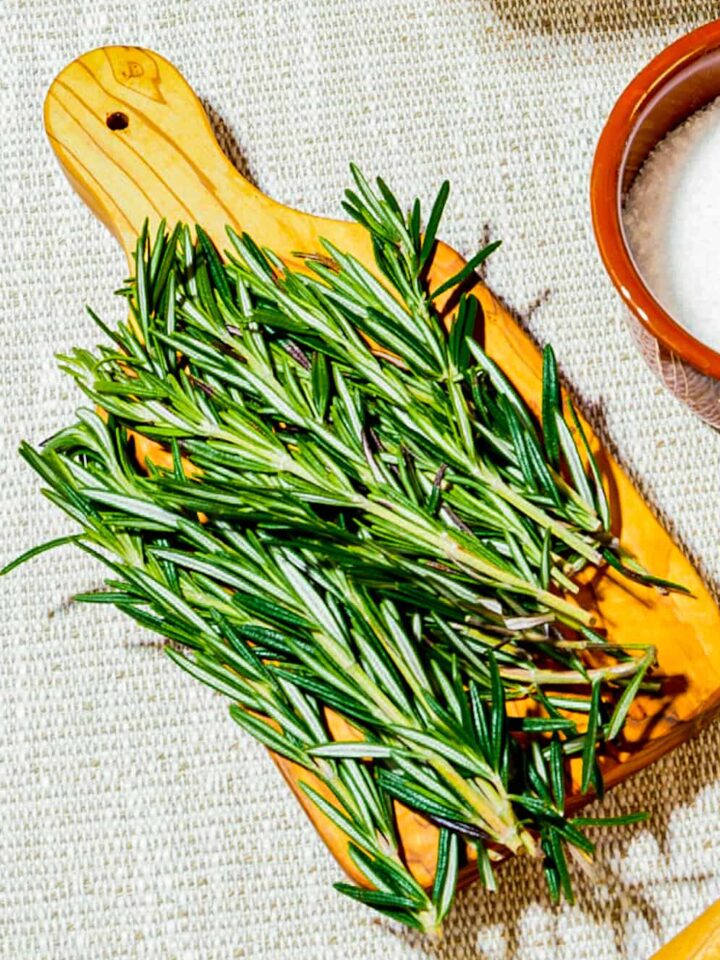



Comments
No Comments